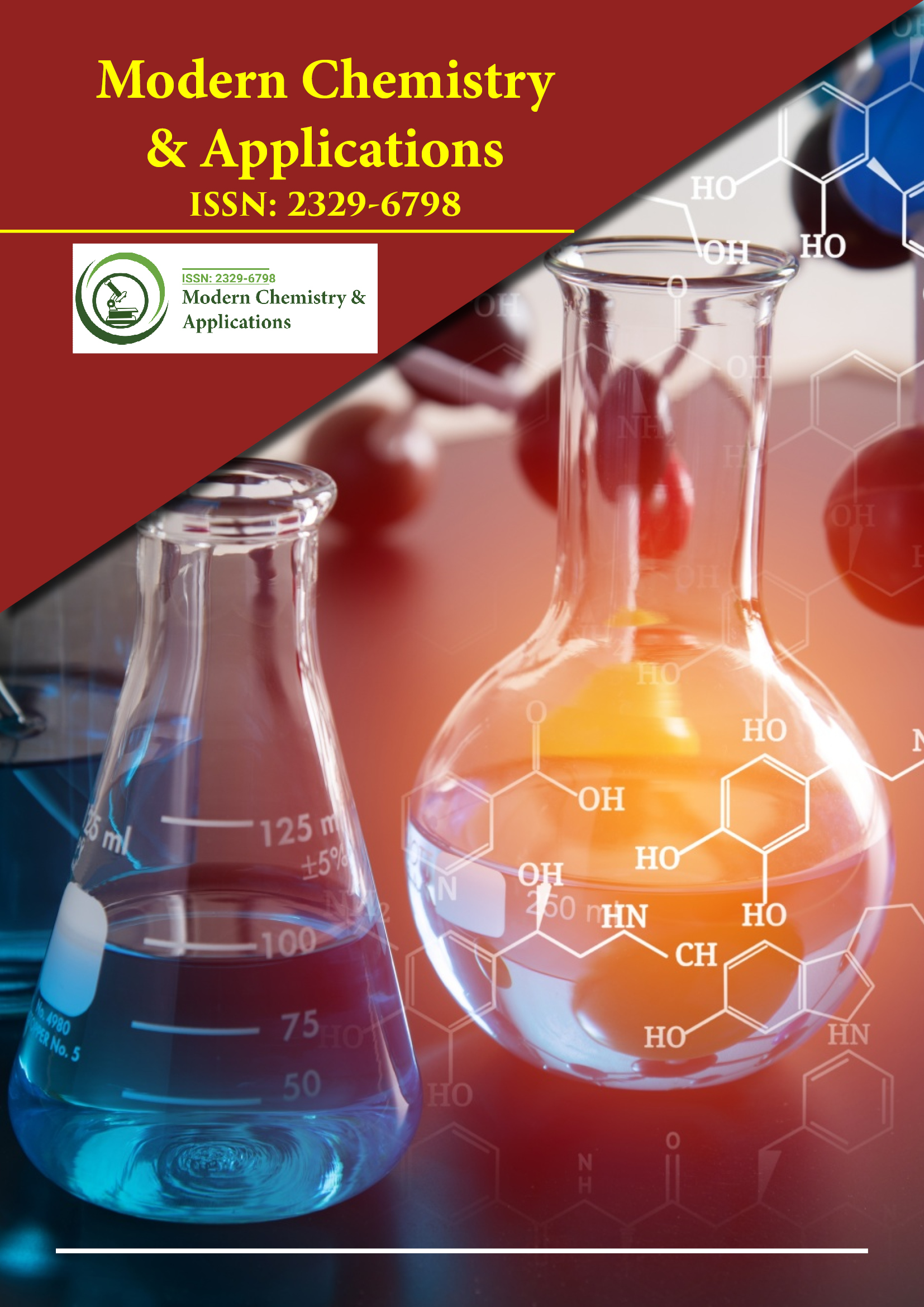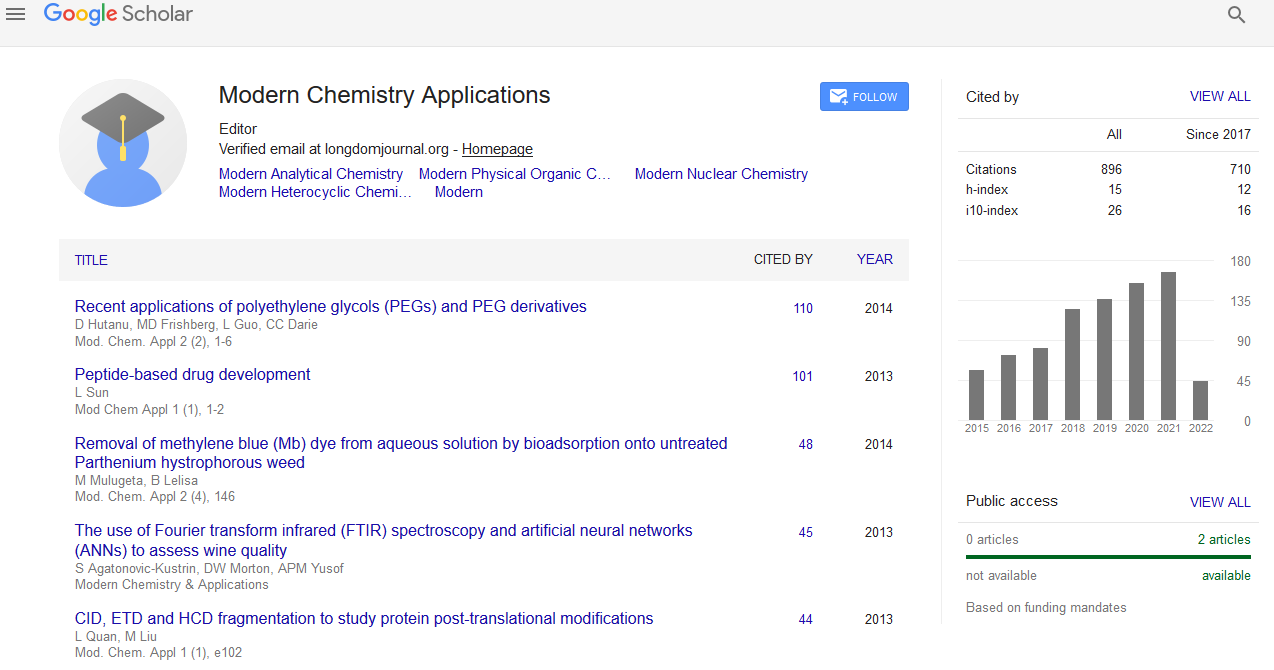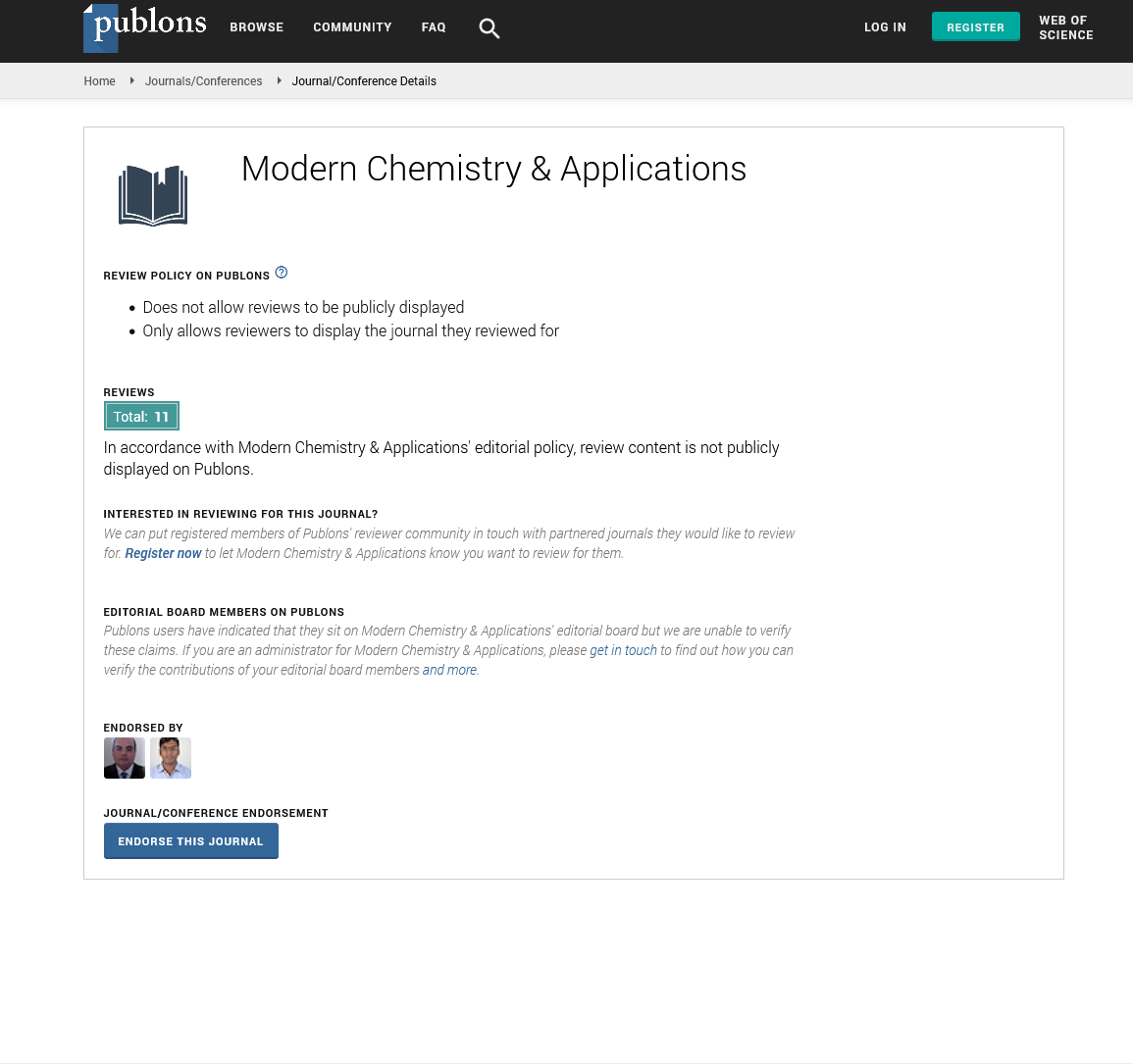Indexed In
- Open J Gate
- JournalTOCs
- RefSeek
- Hamdard University
- EBSCO A-Z
- OCLC- WorldCat
- Scholarsteer
- Publons
- Geneva Foundation for Medical Education and Research
- Google Scholar
Useful Links
Share This Page
Journal Flyer

Open Access Journals
- Agri and Aquaculture
- Biochemistry
- Bioinformatics & Systems Biology
- Business & Management
- Chemistry
- Clinical Sciences
- Engineering
- Food & Nutrition
- General Science
- Genetics & Molecular Biology
- Immunology & Microbiology
- Medical Sciences
- Neuroscience & Psychology
- Nursing & Health Care
- Pharmaceutical Sciences
Wastewater treatment of antibiotics using natural zeolite
10th International Conference on Chemistry
May 09-10, 2019 | Amsterdam, Netherlands
Imeda Rubashvili,Luba Eprikashvili, Teimuraz Kordzakhia,Marine Zautashvili, Nino Pirtskhalava and Maia Dzagania
Ivane Javakhishvili Tbilisi State University,Georgia
Scientific Tracks Abstracts: Mod Chem Appl
Abstract:
Pollution of aquatic ecosystems is a threat not only to the aquatic environment, but also to the vital activity of humans and all living organisms. A special place in this series is occupied by pharmaceuticals. Dehydrated zeolite is a microcrystalline “sponge” in which the pore volume is up to 50% of the volume of the zeolite framework. Such a structure, having an entrance window diameter of 0.3 to 1.0 nm (depending on the type of zeolite), is a highly active adsorbent. In the present work, the adsorption properties of the natural and modified forms of the clinoptilolite zeolite from the Georgian Handaky deposit with respect to some fluoroquinolones, as well as cephalosporins were investigated. The study of the adsorption process was carried out in dynamic conditions. Basic information about the operation of the zeolite sorbent layer was obtained by constructing output curves in the coordinates C/Co - τ, where C is the concentration of the components of pollutants, τ is time. The experiments were carried out before the complete development of the zeolite layer. From the graphic data were calculated: dynamic (ad) and equilibrium (aeq.) activity; the time of the protective action of the sorbent layer (τ); the length of the mass transfer zone (Lo) and the degree of use of the sorbent layer (η). Each control antibiotic was determined quantitatively in test solutions using the HPLC method validated with respect to system suitability test, specificity, linearity-range, accuracy limit of detection (LOD) and quantitation (LOQ). Hence, this study demonstrated and proved that natural zeolite could be an effective adsorbent for removal of the selected antibiotics from wastewaters.
Biography :
Imeda Rubashvili has completed his PhD from Georgian Technical University and Post-doctoral study from the University of Liege. He is a Senior Scientific Researcher at Petre Melikishvili Institute of Physical and Organic Chemistry of Ivane Javakhishvili Tbilisi State University and the Head of Validation Department of a pharmaceutical company Aversi-Rational Ltd. He has published more than 30 scientific papers in reputed peer-reviewed journals. He is the Member of the Council of Young Scientists of the Georgian National Academy of Sciences.
E-mail: rubashvili@yahoo.fr


